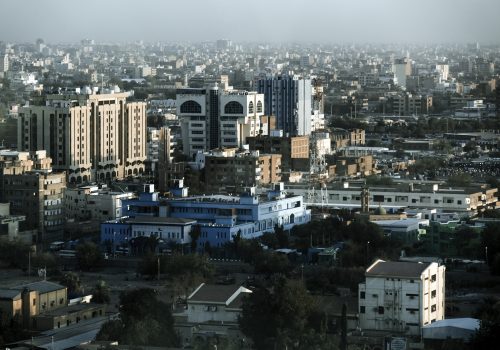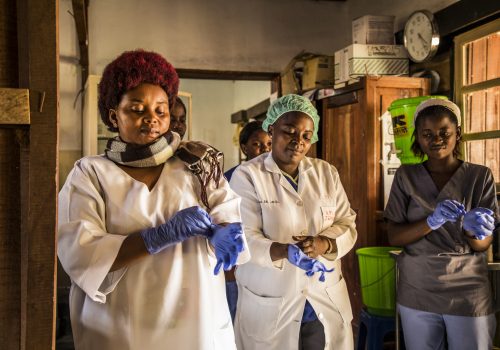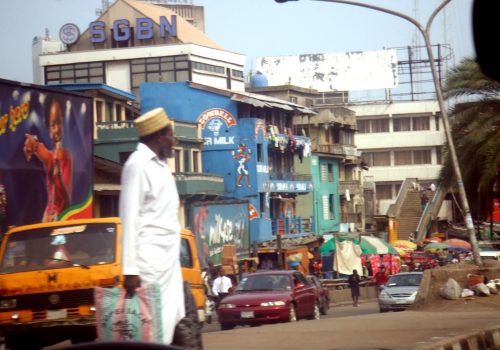COVID-19 pandemic: In a nation of extreme inequality, South Africa’s poorest are most at risk
South Africa is a highly unequal society—one of the most unequal in the world—with a GINI coefficient of 0.63. Though a virus such as the novel coronavirus does not discriminate by income or race, the realities of poverty and marginalization make it more likely that impoverished communities will disproportionately suffer from its effects.
While South Africa’s initial spike in COVID-19 cases all involved those who were wealthier and had been traveling, if the virus is not contained and community transmission intensifies, it could pose a very high risk to lower-income communities who rely on public transportation, do not have savings and must continue working, cannot afford hygiene products, live with large households, and reside in informal settlements. As this jump occurs, the spread of the virus will increase rapidly. Indeed, the number of cases in South Africa has skyrocketed from 150 (March 19) to 554 (March 24) in merely five days.
There could be two very different narratives that result from the coronavirus’s spread in South Africa: that of the isolation of wealthy South Africans—more similar to much of the West’s experience—and that of the sheer destructiveness of the virus to lower-income South African communities.
Though in recent weeks some have speculated that youthful African countries may fare relatively well compared to countries with more aged populations such as Italy and the United States, this is not a full picture of the reality of the situation for several African countries. In South Africa especially, despite the large youth population and smaller elderly population, there is a significant percentage of the population who live with chronic, underlying conditions, such as diabetes and respiratory illness, and these people are likely to be at higher risk of severe symptoms, complications, and death if infected by the coronavirus—especially if their underlying illness is not well-managed through regular medical care. Though the risk posed to individuals with HIV is still unknown, there is a particularly high concern among South African public health professionals and doctors that COVID-19 could cause more severe symptoms in the high number of HIV-positive individuals living in the country. Of those with HIV in South Africa, nearly two-and-a-half million do not regularly take anti-retroviral drugs to manage their condition, rendering them more vulnerable to illnesses and infections. Many also live with or are at a higher risk for tuberculosis, which some fear could compound the respiratory effects of COVID-19.
South Africa is one of Africa’s richer nations and has an atypically-strong public health system. But, like the Western nations, it is still vastly underprepared to handle a high caseload of individuals sick with COVID-19. With fewer than one thousand beds to support a population of fifty-six million, South Africa does not have anywhere near enough Intensive Care Unit (ICU) beds to respond to a virus reaching high-risk populations and spreading exponentially. If the health system becomes overwhelmed, drastic measures will need to be taken, and individuals who could otherwise be saved may not survive without proper care. Of course, hospital needs unrelated to COVID-19 may also be neglected as hospital staff must quickly decide how to prioritize cases.
Because of the significant risk posed to its population, South African officials have acted quickly and dramatically to respond to the pandemic and attempt to contain its spread. The government has declared a national state of disaster, closed many land ports and schools across the nation, barred entry to citizens of certain high-risk countries and revoked visas, and criminalized the spread of false information about the coronavirus, hoping to prevent the rampant spread of false rumors such as that black people are immune to the virus or that it can be cured using homemade remedies such as garlic. In wealthier areas, drive-in testing sites have been set up and measures are being planned to try and prevent panic-buying and create specific times for the elderly to shop. Testing, treatment, and quarantine for suspected cases are now legally enforced—even resulting in court action against a family who refused to isolate in Gauteng province. South Africa also limited gatherings to one hundred people, and to fifty people at gatherings where alcohol is present. However, despite these efforts, some people continued to attend events such as church services, seeking hope and comfort during these unprecedented and anxious times—though potentially creating more opportunities for the spread of the virus. On March 23, President Cyril Ramaphosa declared a twenty-one day national lockdown to keep residents at home beginning on March 26.
South Africa faces a large threat from the novel coronavirus pandemic and will need to continue to take drastic measures to reduce the spread of the virus and support its economy (a separate, forthcoming blog will examine the likely impacts of COVID-19 on South Africa’s economy). However, South Africa’s poorest are most at risk, and this crisis will likely highlight and deepen divides and resentment between the country’s richest and poorest as two very different experiences of the COVID-19 pandemic take hold in one of the world’s most dramatically unequal countries.
Alyssa Harvie is a program assistant with the Atlantic Council’s Africa Center. Follow her on Twitter @alyssaharvie.
Questions? Tweet them to our experts @ACAfricaCenter.
For more content, go to our Coronavirus: Africa page.
Image: Soweto township outside of Johannesburg, South Africa. (Flickr/Travis Lupick)


